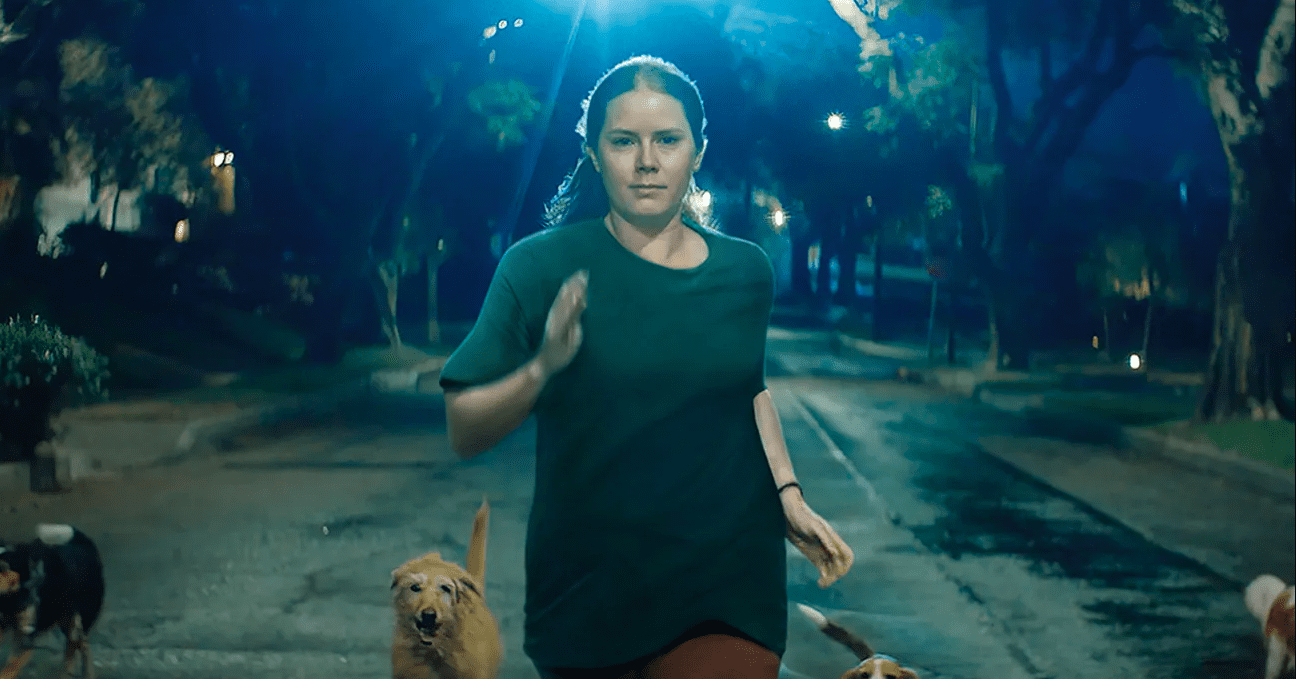
Whatever you think a movie about a woman thinking she’s turning into a dog is going to be like, I’m here to tell you, that movie is really normal. Maybe not normal enough for the Oscars, but it’s worth mentioning, as there was much hype during Nightbitch‘s production that it would mean this was “Amy Adams’s year.”
Beyond being mostly normal, Nightbitch is also very good. It certainly isn’t weirder or more abstract than anything else you see in most theaters today. Apart from Amy Adams eating and barking like a dog in a food court, it’s completely sane. And important.
I know. That can be such an eye roll …”important.” But it really can be if audiences are willing to listen to what the film has to say.
Early on, it feels like the movie will spark the next chapter in the culture war. Yet another movie that bashes motherhood, suggesting that raising kids sucks and that life is terrible as a mom. Seeing how the first act of the movie unfolds (with some wryly written monologues that Adams sinks her teeth into) it certainly has its moments. There’s more to unpack, though, as Adams’s “Mother” dives into mania.
Adams spends a great majority of the film with her on-screen two-year-old son who constantly annoys her throughout the day. He is also a difficult sleeper, bringing out a monologue that perfectly sums up the struggle of being a mom. “Mother” says despite experts and friends saying it was important to move him into solo sleeping, she couldn’t resist letting him sleep on her chest when he was young because it was so comforting to her. She truly loved becoming a mom and raises her son with love. But was that a mistake — she wonders in a monologue? Did that create a butterfly effect and ruin her life? That one mistake?
Adams frenetically weighs her decisions as a mother while commenting on the overwhelming pressure to be an expert mom while also not seeking help. Every other mom she encounters seems to feel it as well, but only when she’s the first to openly express it, and that’s where Adams shines most. It’s one thing to be cute with a cute child actor, and that carries much of the movie (highlighted by a painting sequence in the kitchen that is all too familiar to my childhood.) But it’s the contained rage and frustrations that Adams effortlessly makes her performance stand out.
Like Adams’s nameless role, Scoot McNairy is credited only as “Father” in order for director Marielle Heller (who adapted the script from Rachel Yoder’s novel of the same name) to make the movie as metaphorically impactful as possible. It doesn’t strip either of identity, but rather, that choice helps represent the ideas of the experience of parenthood as communal and shared. That makes for a great final act that swoops in to save some low points—hopefully to an audience willing to see both the mother and father’s changes and seeing there’s value to modern ideas of parenting. It’s hereditary, and it’s normal to seek a break from the insanity that being a parent can cause.
For Nightbitch, the insanity is certainly more than most moms might experience. That’s all part of the fun, though. None of it could be done without Adams’s commitment to the bit, exchanging her typical charm for raw, unfiltered emotion. With McNairy purposefully absent for a good chunk of the movie and a select number of supporting cast, it’s really a one-woman show that Adams easily carries on her back.
This isn’t at quite the same level as Heller’s last two films, A Beautiful Day in the Neighborhood and Can You Ever Forgive Me, but with how tightly it all comes together in the end, Nightbitch is a welcomed addition to her resume.

